The UNIC website uses cookies to improve your experience. Read our full Cookie Policy here.
Our 2022 Strategic Conference was a place to take stock, consolidate learnings, and advance the pioneering work we’ve been leading by deliberating on the program’s collective future. Read on for some important takeaways and session summaries.
The atmosphere at the Theil Building was electric, buzzing with ideas, brainstorms, and breakthroughs. Organized across opening plenaries, parallel sessions, workshops, and side activities (including a popular city walking tour), the Strategic Conference was focused on consolidating the UNIC vision for the alliance’s next phase. At the forefront of every discussion was the urgent need for innovative organizational structures and strengthening sustainable cooperation between universities across Europe.
A keynote plenary led by Prof. Dr. Ed Brinksma, President of Erasmus University, set the stage for big questions and inspiring words: how do we create institutional catalysts for change? How can we expand the idea of the European University?
Dr. Michael Murphy, President of the European Universities Association, reiterated UNIC’s goal to crystallize a “portfolio of programs” dedicated to understanding the transitions that post-industrial cities across Europe are undergoing. ““Europe is only going to be as strong as its universities will be,” he said. Seemingly building on that comment, UNIC is “leading the way to the universities of the future,” said Sophia Eriksson, Director for Youth, Education, and Erasmus+ at the European Commission, in a video address, singling out praise for our City Labs, which bring together students, professors, citizens, and city partners to jointly work on urban challenges.
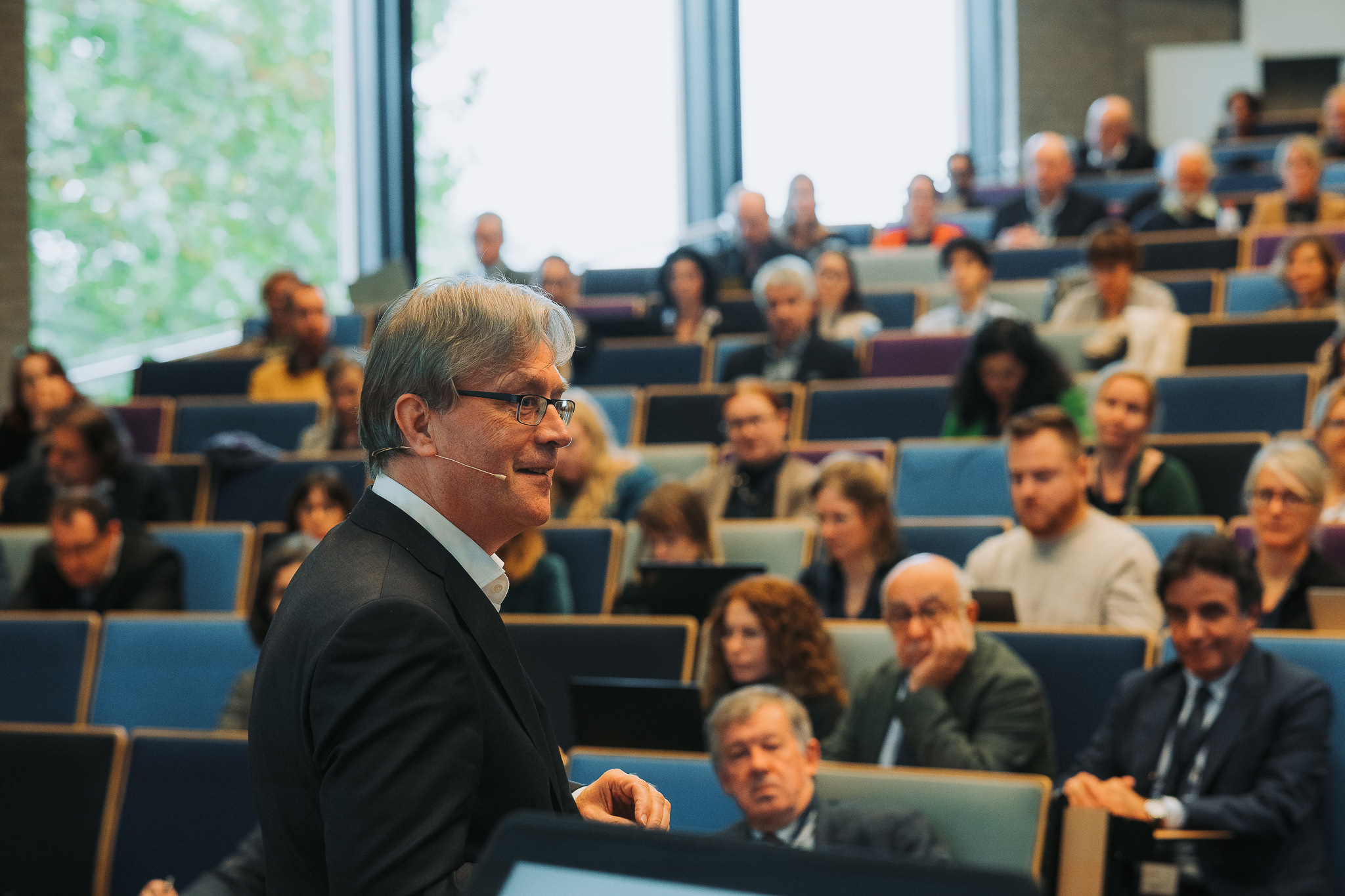 EUR President Prof Dr Ed Brinksma addresses the opening plenary on 17 October 2022. Photo by Alexander Santos Lima
EUR President Prof Dr Ed Brinksma addresses the opening plenary on 17 October 2022. Photo by Alexander Santos Lima
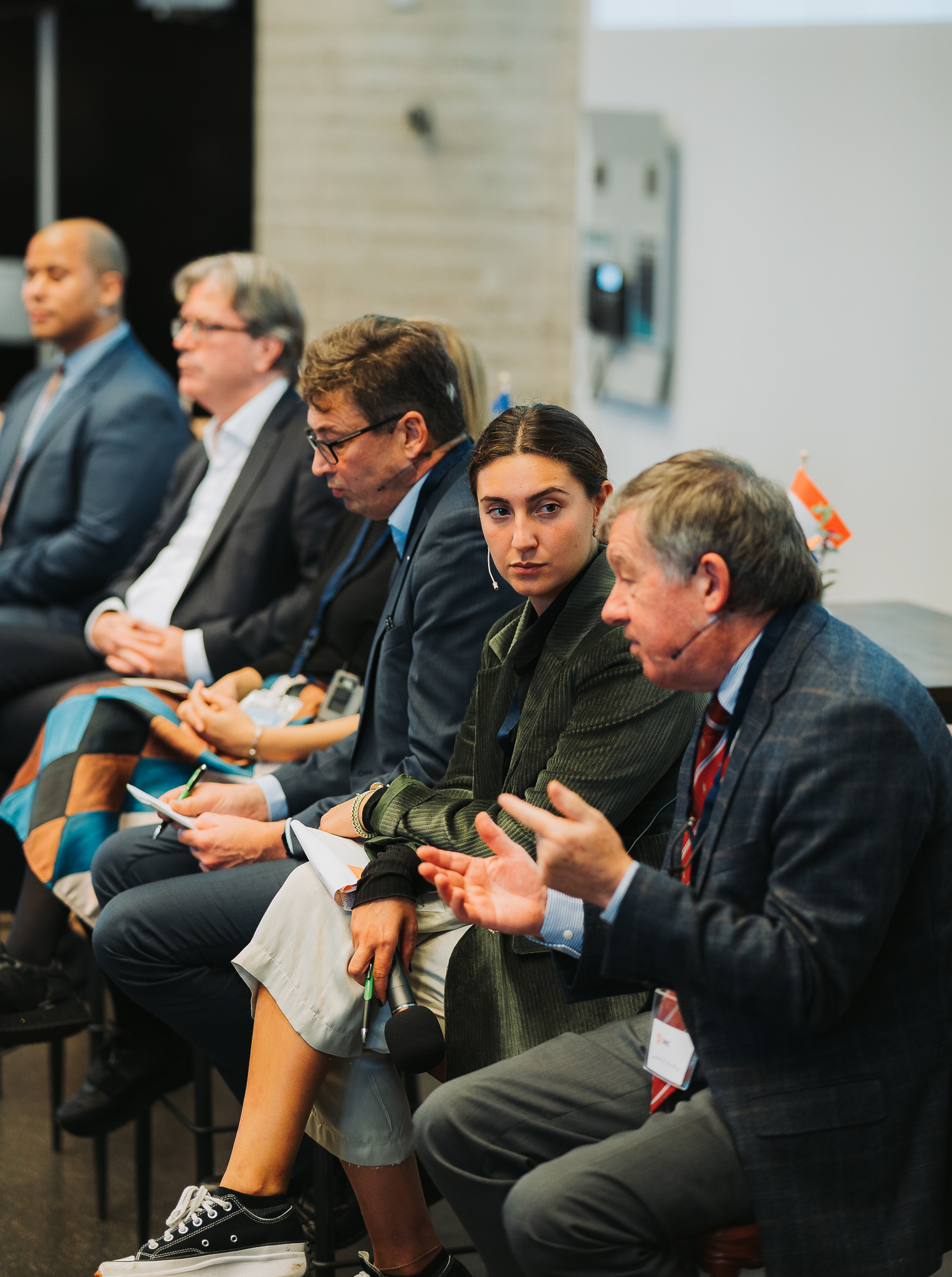
Dr Michael Murphy (extreme right) And UNIC Student rep Yağmur Kökden (in green) speak at the Opening Plenary. Photo by Alexander Santos Lima.
The Future of the European University
The Strategic Conference featured a diverse mix of researchers, students, and city stakeholders, creating new spaces for deliberation between ideas that wouldn’t normally find each other. “[It’s] a new mindset,” said Yağmur Kökden, UNIC Student Representative at Koç University in Istanbul. “When you are together with different perspectives, it really can broaden your horizons.”
Recently expanded to 10 alliance partners with the addition of Malmö University, Sweden and University of Lodz, Poland, our UNIC alliance now unites over 200,000 students and nearly 30,000 staff, moving ever closer to the European Commission’s call to create bottom-up networks of universities throughout Europe, committed to teaching, research and community engagement towards inclusive societies.
Those cross-cutting issues formed the bulk of the conference’s parallel sessions. Pioneering work from pan-European UNIC initiatives like The Superdiversity Academy and City Labs were showcased, and best practices distilled. Feedback sessions and breakout rooms prompted vigorous idea sharing, allowing a wide swathe of alliance stakeholders to provide direct inputs on the program’s push to build out new plans for phase two across themes that included urban resilience, superdiversity and inclusion, health and wellbeing, and purpose-driven entrepreneurship.
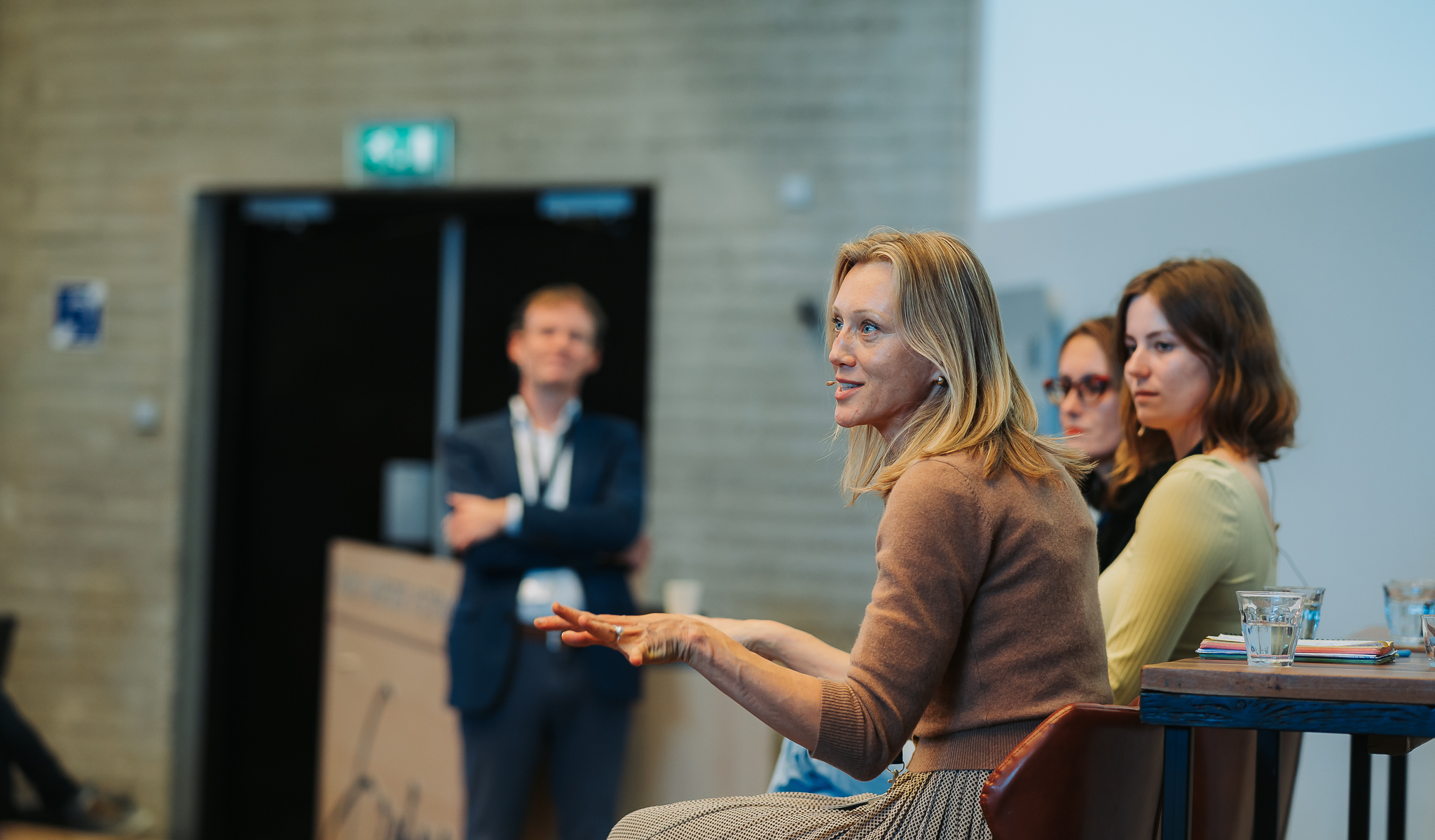 A session in progress. Photo by Alexander Santos Lima.
A session in progress. Photo by Alexander Santos Lima.
In between more formal discussions, side activities such as city walking tours, receptions, and casual drinks sparked further ideas and forged new collaborations.
On Days 2 and 3, parallel sessions built on working groups within the UNIC alliance to generate short, punchy takeaways. These underlined the collaborations, student engagement, structural reforms and shared tools being developed to strengthen the European Higher Education Area (EHEA), and address the contributions to inclusive education, engaged research, and service to society that the UNIC model enables.
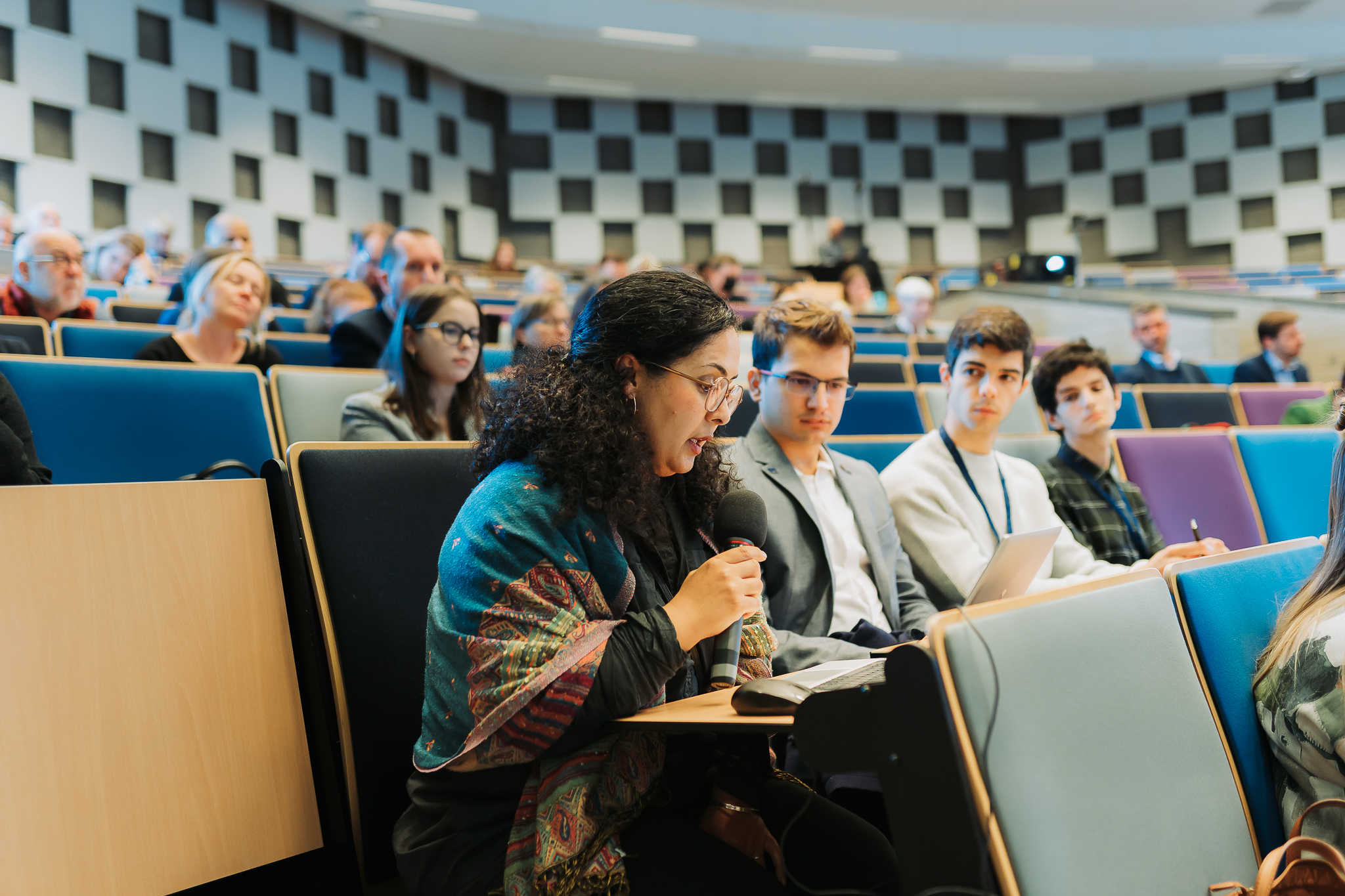 Discussions unfolded in both formal...
Discussions unfolded in both formal...
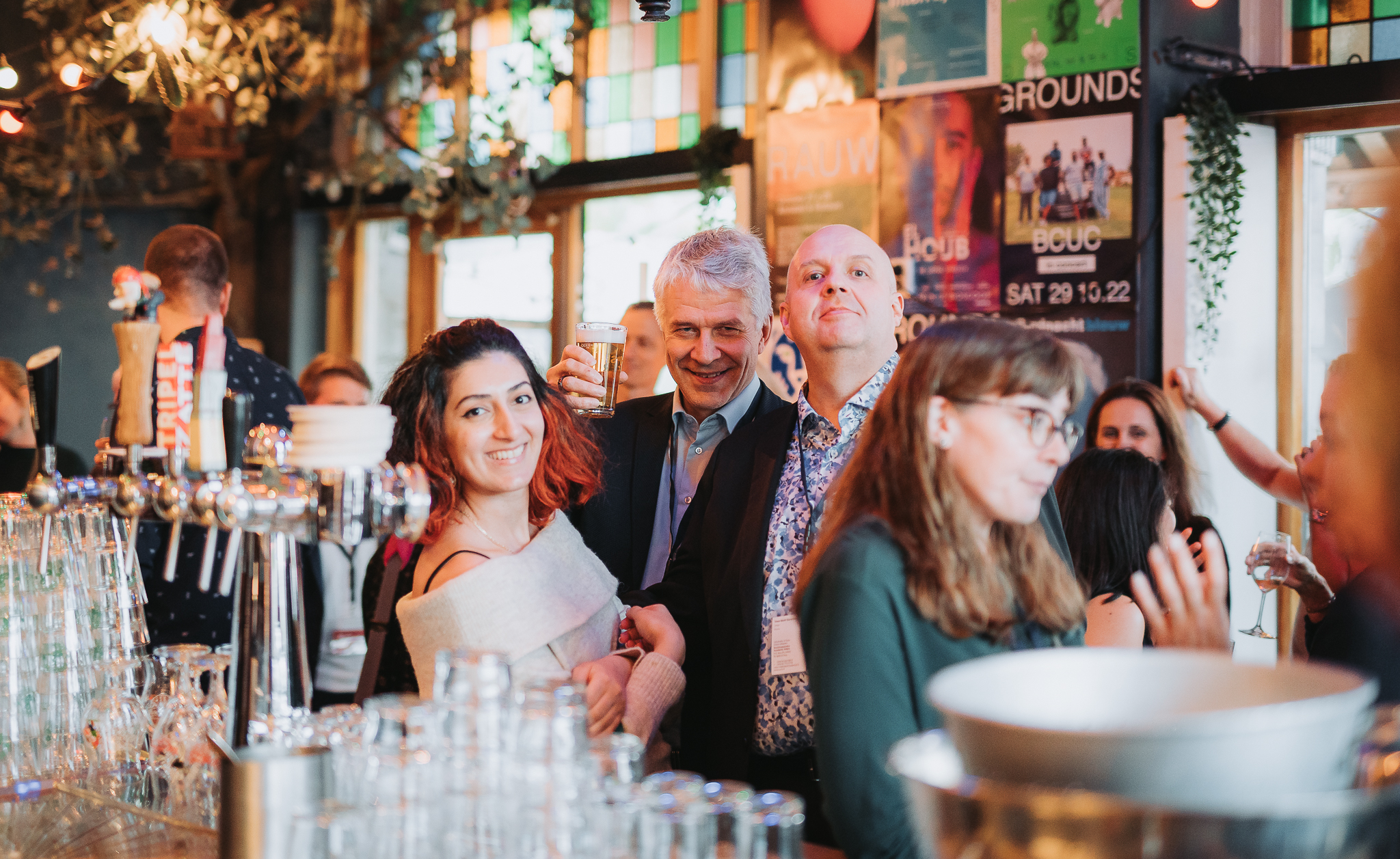 ...and informal settings.
...and informal settings.
In between more formal discussions, side activities such as city walking tours, receptions, and casual drinks sparked further ideas and forged new collaborations.
On Days 2 and 3, parallel sessions built on working groups within the UNIC alliance to generate short, punchy takeaways. These underlined the collaborations, student engagement, structural reforms and shared tools being developed to strengthen the European Higher Education Area (EHEA), and address the contributions to inclusive education, engaged research, and service to society that the UNIC model enables.
In co-producing a common approach to the impact and future of ‘European Universities’, the conference addressed and answered the Erasmus+ call to deepen and intensify existing institutional alliances, and pioneer diverse models of “systemic, structural and sustainable transnational cooperation.”
“The future of European universities is very bright,” concluded Dr Daria Ratsiborinskaya, senior policy officer for internationalization at Erasmus University Rotterdam (EUR), as she collected summaries from the conference’s parallel sessions, kickstarting the consultative process to shape UNIC’s collective future beyond 2024.
UNIC HEI Award 2025: Two Outstanding Courses Recognised for Inclusive ...
The UNIC Alliance is pleased to announce the winners of the UNIC HEI Award 2025 – Best Practic...
08 Jan 2026
Read more »Call for Submissions: UNIC Thematic Lines CityLabs Award 2026
Deadline: 16 March 2026 (23:59 CEST)
06 Jan 2026
Read more »RUB Centre for City Futures opens in Bochum, Germany
The UNIC Centre for City Futures (CCF) is a change agency bringing universities and cities tog...
18 Dec 2025
Read more »